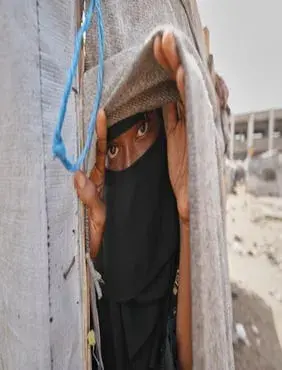This study, conducted in collaboration with the Yemen Women Union, and with technical support from the Global Area of Responsibility (AoR) examines the safety and protection needs of women and girls of the Muhamsheen, an ethnic minority community in Al Hudaydah Governorate of Yemen.
The study aims to identify the specific safety and protection needs of the community women and girls in the context of the ongoing conflict. It also analyses the impact of the pre-existing marginalization on their vulnerability to gender-based violence and informs the development of targeted and tailored GBV programming strategies and interventions by UNFPA and the GBV AoR members to effectively serve the Muhamasheen community and other marginalized groups.
The study establishes the pre-existing marginalization of the Muhamasheen community and the disproportionate impact of the ongoing conflict on their basic needs. Their access to basic needs such as food, water, healthcare, education, safe housing, and regular income is severely impacted. The desperate search for necessities, particularly food security, disproportionately burdens women and girls within the community. The community also lacks secure housing and regular income, forcing many to spend most of their days searching for food. The research identifies the lack of legal frameworks prohibiting discrimination and promoting Muhamasheen inclusion as a key factor hindering their well-being. Furthermore, the absence of pre-conflict and current reintegration strategies from both the government and humanitarian actors exacerbates their vulnerabilities.
While the research focuses on Al Hudaydah, the findings likely resonate with the Muhamasheen community across Yemen. The proposed interventions hold potential for application nationwide.


